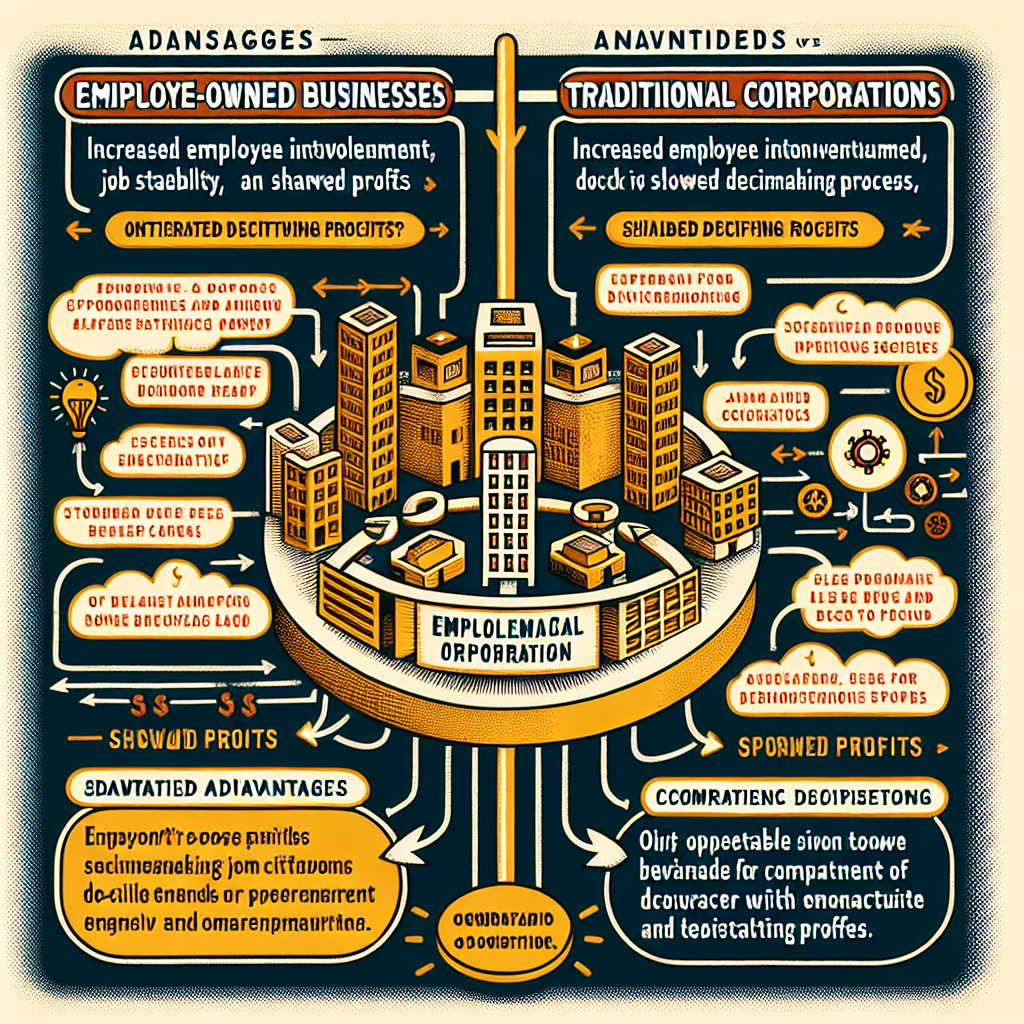When it comes to running a business, there are many different models to choose from. Two popular options are employee-owned businesses and traditional corporations. Both have their own set of advantages and disadvantages, so it’s important to understand the differences between the two before making a decision.
Employee-Owned Businesses
Employee-owned businesses are exactly what they sound like – companies where the employees have ownership stakes in the company. This can take many forms, such as stock options or profit-sharing programs. One of the main benefits of this model is that it can lead to increased employee engagement and loyalty. When employees have a stake in the success of the company, they are more likely to work hard and go above and beyond to help the business succeed.
Another advantage of employee-owned businesses is that they often have lower turnover rates, which can lead to cost savings in terms of recruiting and training new employees. Additionally, studies have shown that employee-owned businesses tend to be more productive than traditional corporations, as employees feel a sense of ownership over their work.
Traditional Corporations
On the other hand, traditional corporations operate under a more hierarchical structure, with ownership typically held by shareholders or a small group of investors. While this model may not offer the same level of employee engagement as employee-owned businesses, it does provide certain benefits such as easier access to capital and resources.
In addition, traditional corporations may be able to achieve economies of scale that employee-owned businesses struggle to match. This can result in cost savings for things like bulk purchasing or marketing campaigns. However, some critics argue that traditional corporations may prioritize profits over people, leading to lower job satisfaction among employees.
Conclusion
Ultimately, both employee-owned businesses and traditional corporations have their own unique advantages and disadvantages. It’s important for business owners to carefully consider which model aligns best with their values and goals. Employee-owned businesses may offer benefits such as increased employee engagement and productivity, while traditional corporations may provide easier access to capital and resources.
Whichever model you choose, it’s important to weigh the costs and benefits carefully before making a decision. By understanding the differences between these two models, you can make an informed choice that will set your business up for success in the long run.
